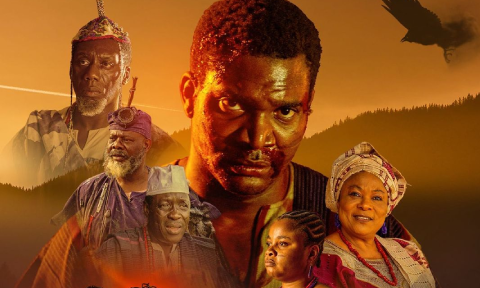
Most activity for films from/by/about the diaspora at Cannes Film Festival takes place in the film market. With its vast array of booths set up by production companies and sales and distribution agents from around the world, Le Marché du Film compares with any market one visits on one’s world travels – but instead of arromatic spices, exotic fruit and veg and and an assortment of local arts and craft, this contained sprawl of creative commerce offers up a cacaphony of cinematic intrigue and wonder, with TV monitors and posters promoting the bizarre, the beautiful, the bemusing and the baffling from around the world.
One of the biggest film markets, and perhaps the most prestigious, this is where determined and savvy filmmakers come to promote and sell their latest film projects, offering small theatre market screenings, DVD screeners and available geographical territories, in the hope of making a deal that’ll support their livelihoods and spur them on to their next masterpiece. It’s here that I met and interviewed Leila Djansi, award winning Ghanaian filmmaker (now based in the US), to talk about her latest film, Sinking Sands, which screened at the market, as well as her career to date, her future projects and the challenges of selling films to buyers who are often uncertain of, and unreceptive to, stories of a people that don’t always fit stereotypes.
Starring Jimmy Jean-Louis, “The Haitian” of TV’s Heroes fame, who also has several Hollywood film roles under his belt, and British-Ghanaian newcomer Ama K Abebrese, Sinking Sands also features talents from Nollywood and Gollywood (Nigerian and Ghanaian film industries) in prominent supporting roles and tells the tragic and insightful tale of a tender, loving relationship that turns to one of frustration, despair and violence from which both parties struggle, emotionally and psychologically, to extricate themselves from. The film was nominated for 9 African Movie Academy Awards (AMAAs) this year and endorsed by UNIFEM, Ghana, as a resource in its Say NO! to Violence campaign, which is championed by Hollywood actress, Nicole Kidman.
Djansi also introduces her next film, Ties That Bind, starring Kimberley Elise, Ama K Abebrese and Nollywood’s Omotola Ekeinde.
Full of laughter and good humour, Djansi is not, however, one to distance herself from difficult subjects and, although she is fully cogniscant of the workings of the film industry and bears this in mind when developing her projects, nor is she one to pander to notions of lighthearted but limiting stories, or tales that dwell heavily on unobjective and narrow confines of the deprived, depraved and the negative, even though they might make for an easier sale. Her dreams for her film career, and cinema of the African diaspora in general, are as ambitious in scope and varied in content as they are pragmatic and strategic in planning. At the centre of her ambitions and goals is humanity – in all its shades, hues, colours… and skin tones.
Here’s my interview with her at Cannes. Hopefully, you’ll find it as inspiring, invigorating and insighgtful as I did.


















